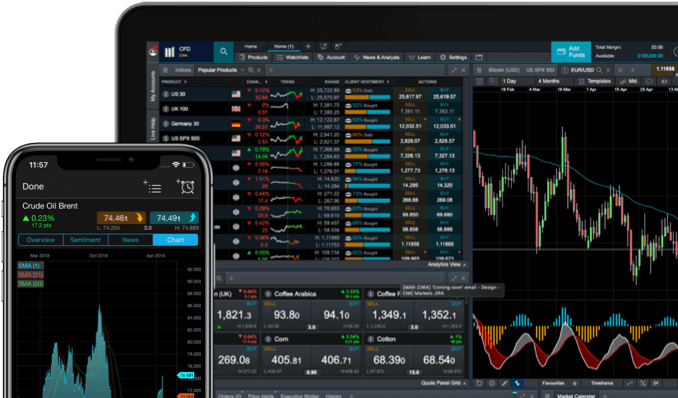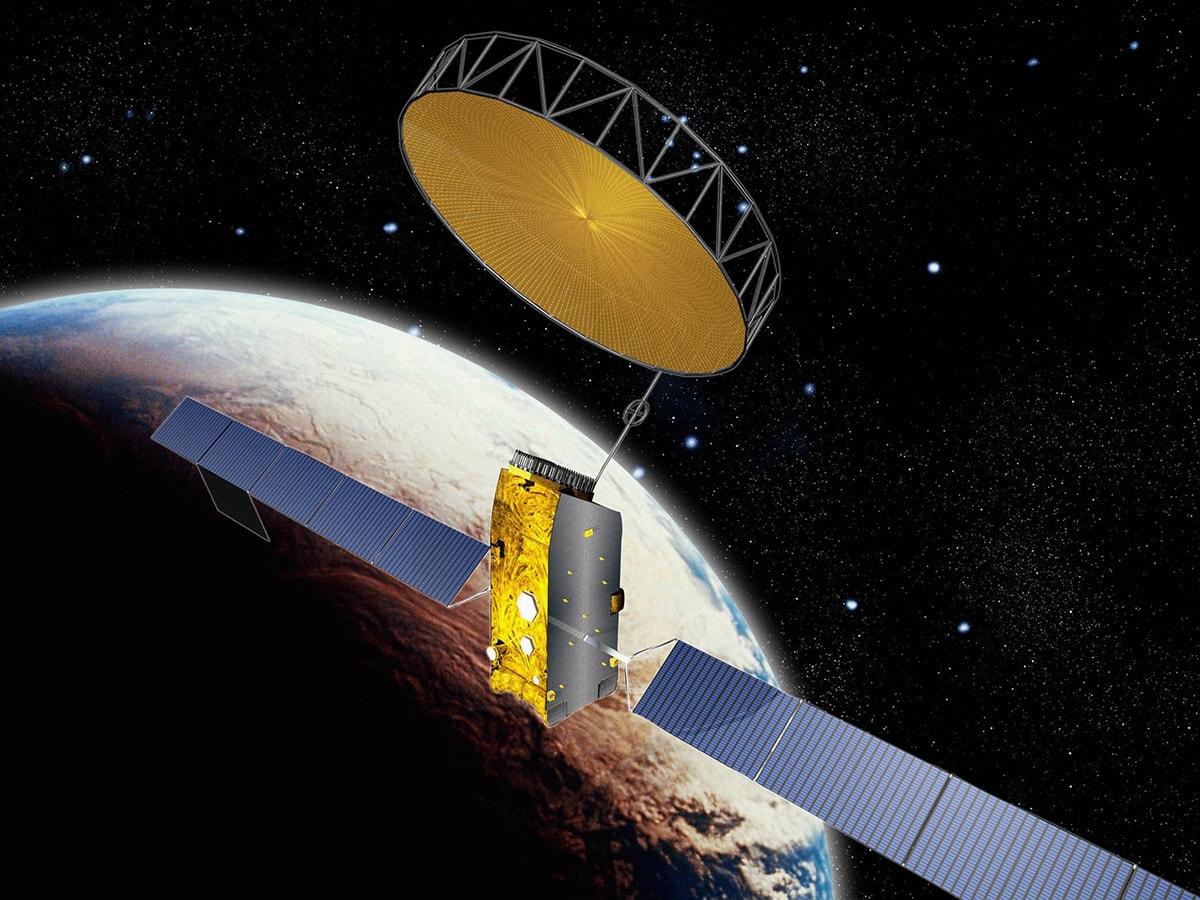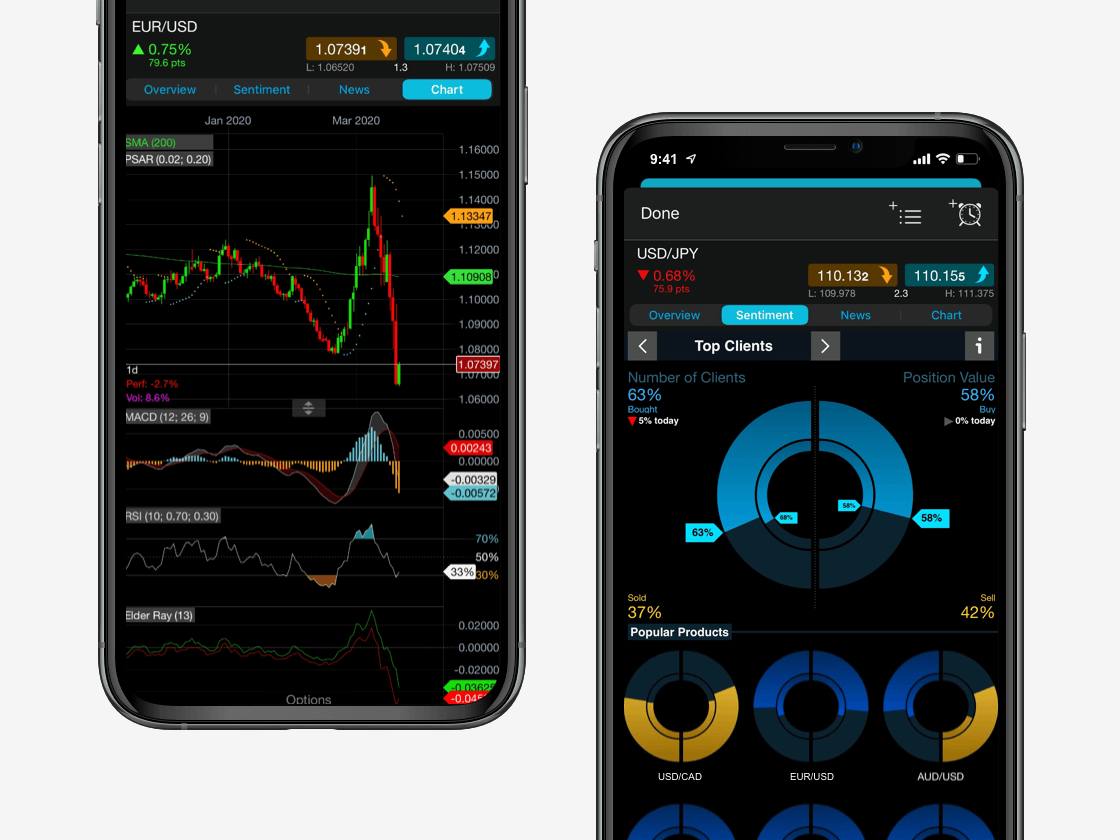As an example, let’s say that you wanted to spread bet on our Virgin Galactic share price.
If you think that the value of the share will rise in the long-term, you could open a buy position (go long) by opening an order ticket at the current buy price of £55. Enter your stake size, add risk-management controls and open the trade. If you are right and Virgin’s share price does increase, you will make a profit for every point that the price has increased multiplied by your stake size. So, if you entered a stake size of £10 per point and the price has moved by 50 points over a period of time, your profit would amount to £500.
If the market were to move in the other direction, you would make a loss for every point that the price has decreased multiplied by your stake size, so profits and losses are calculated in the exact same way. Conversely, if you think that the value of the share will fall in the short-term, you could use a stock shorting strategy and open a sell position.
As spread betting is a tax-efficient way of trading, there will be no capital gains tax to pay, nor stamp duty fees or commissions. However, if you were to trade CFDs with us, you would also incur capitals gains tax and commission fees. These are calculated on your order ticket when placing a trade on our platform, so you won’t have to calculate these yourselves. You should make sure that you have sufficient funds in your account to cover any additional trading costs.


















